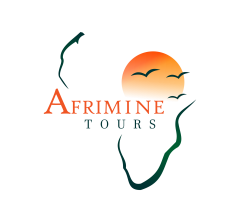17 Days Nature trip to the wild heart of Tanzania - West to South
Dar es Salaam - Kigoma - Gombe Stream Nationalpark - Katavi Nationalpark - Mbeya - Iringa - Ruaha Nationalpark - Mikumi Nationalpark -
Uluguru Mountains - Nyerere Nationalpark - Dar es Salaam






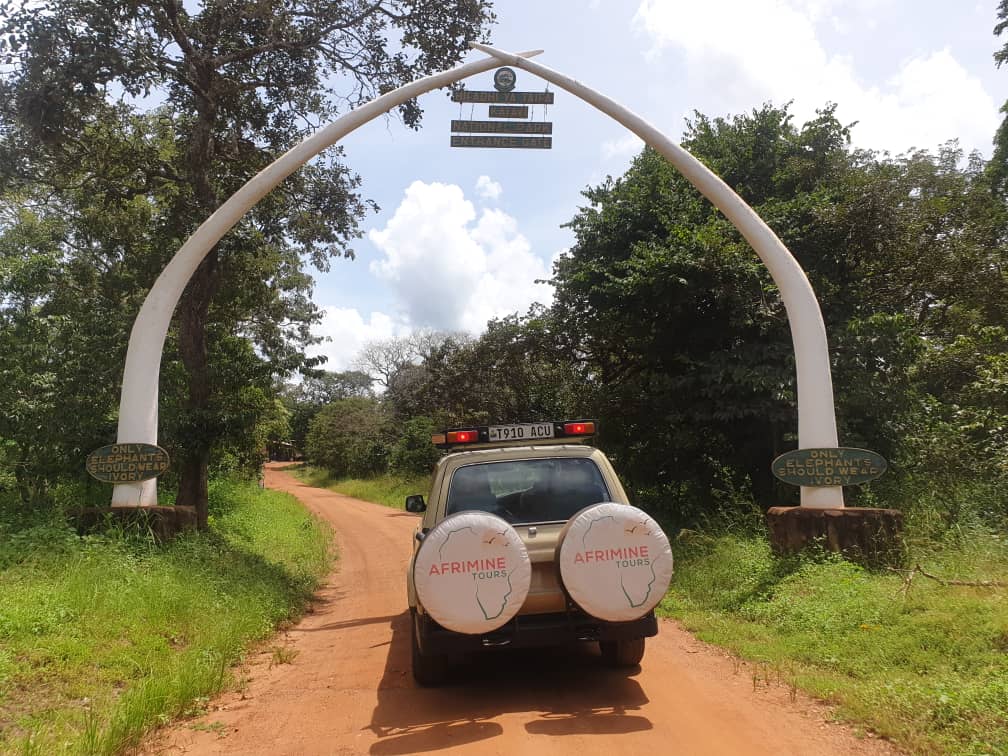
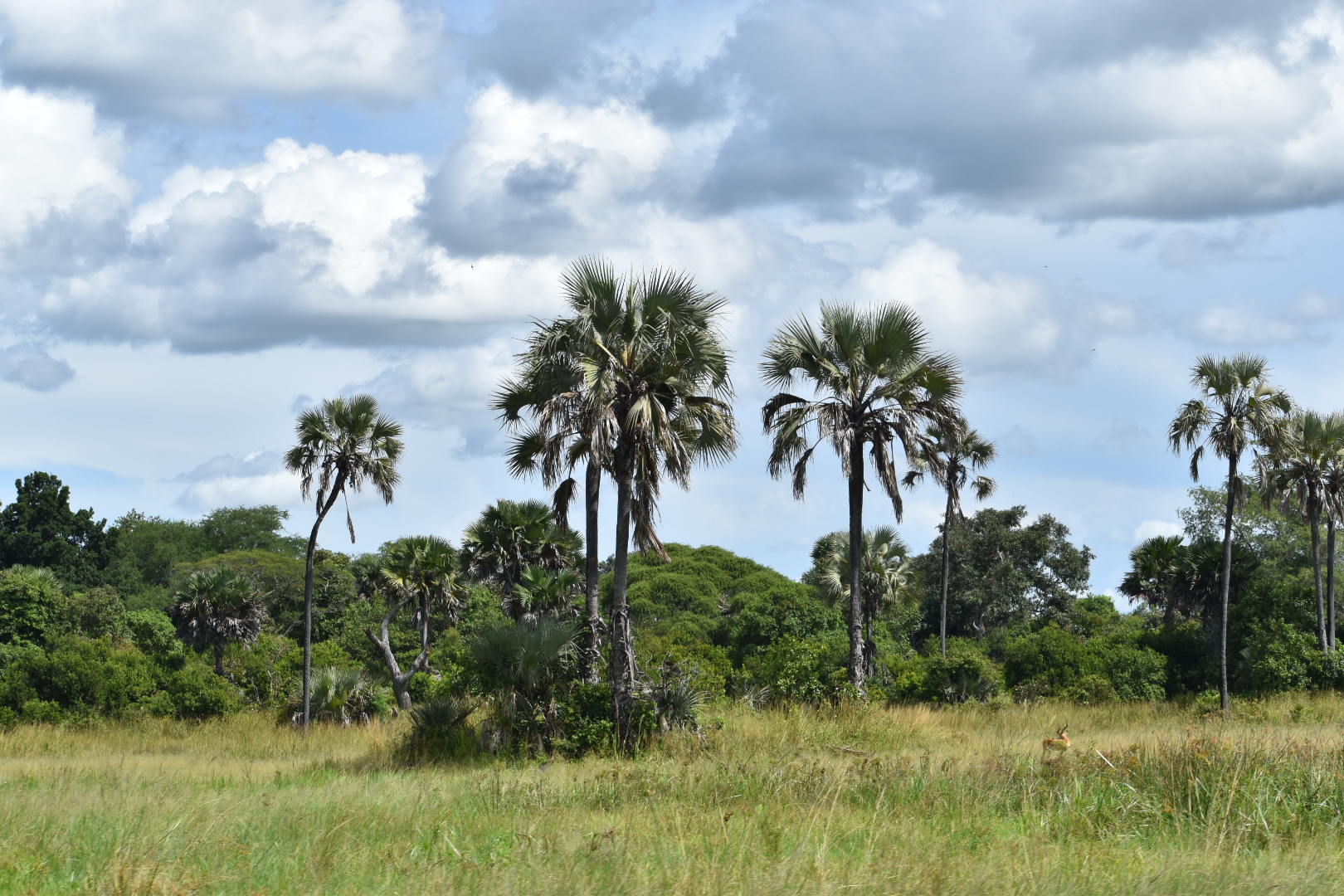
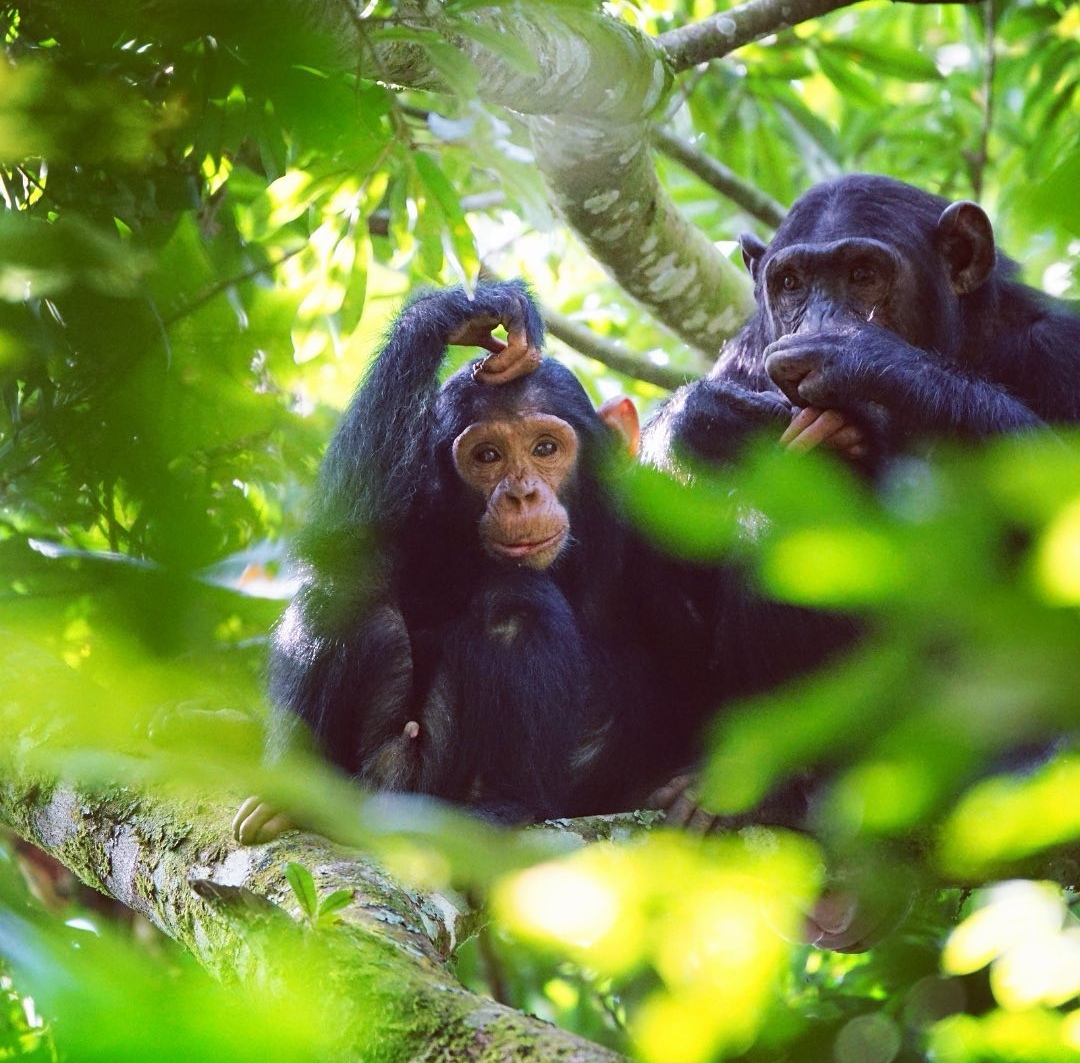
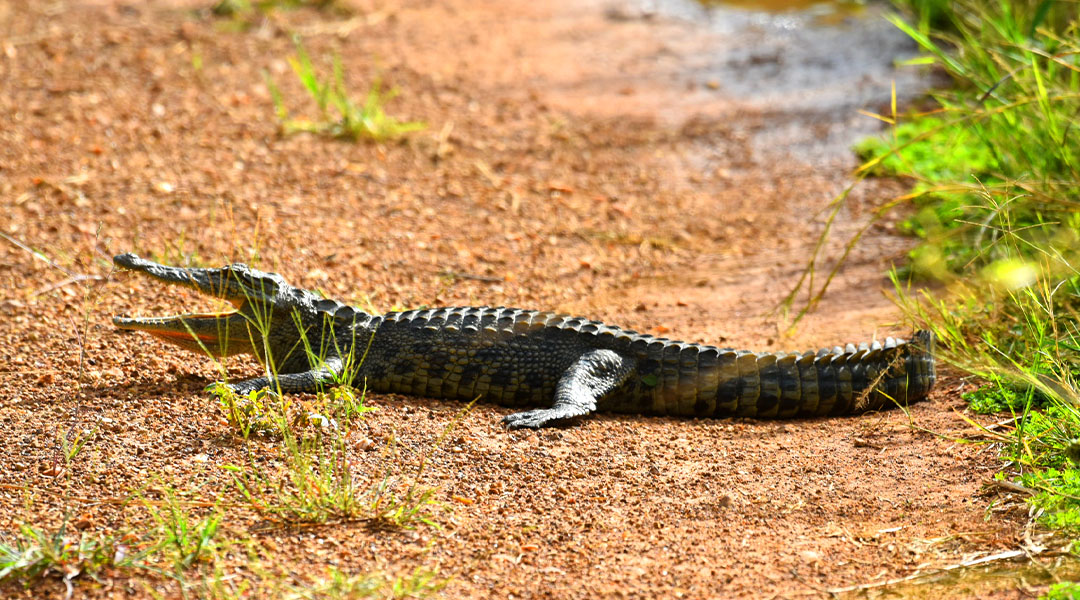
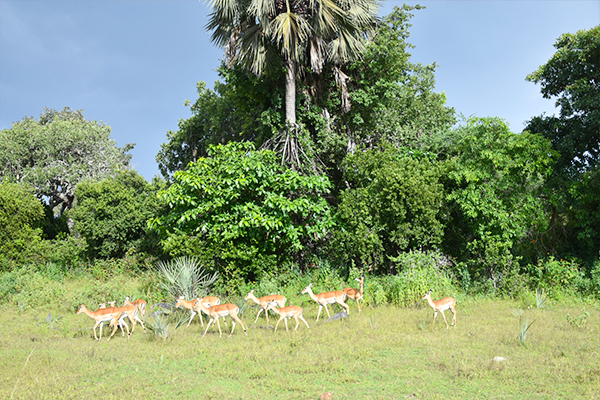

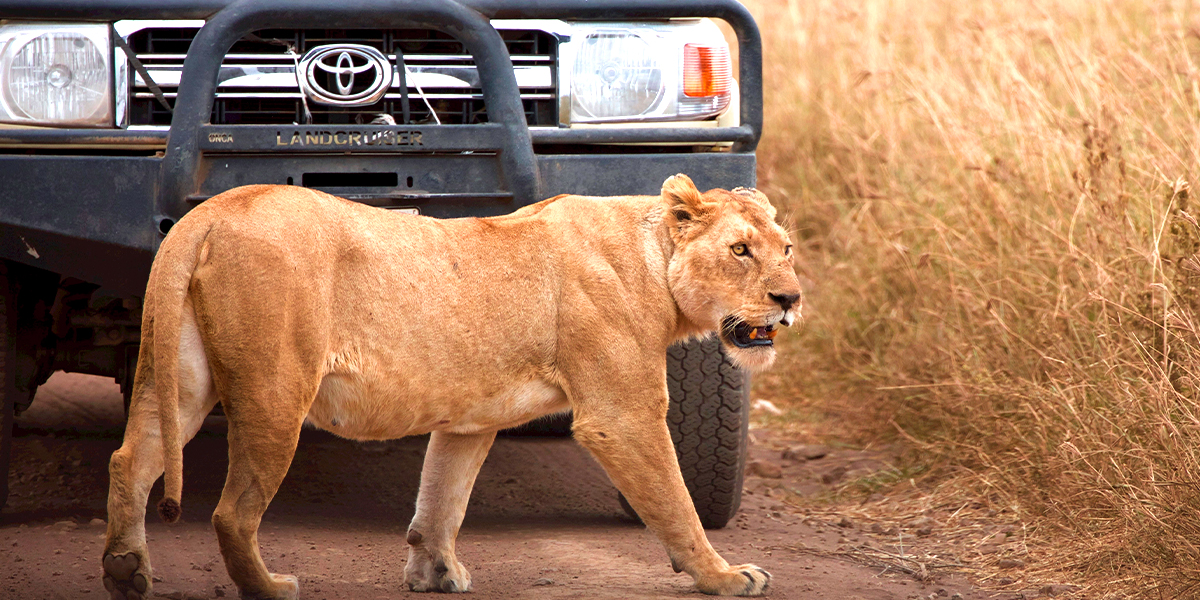
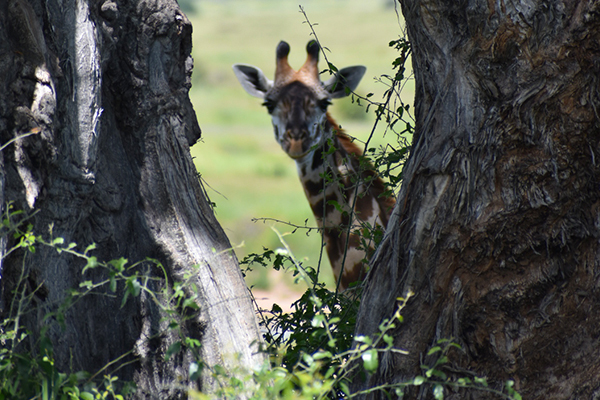

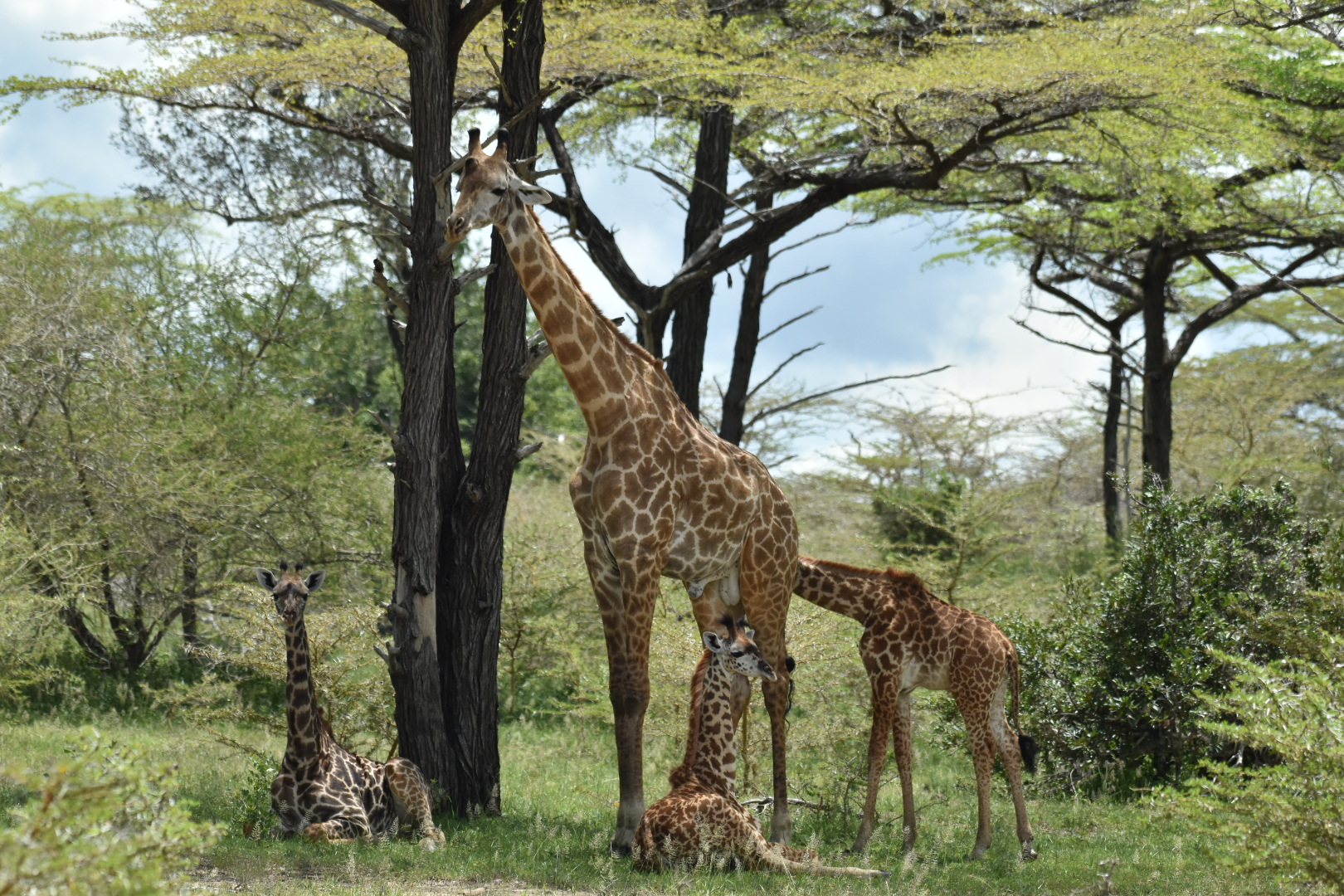

Highlights
The remote parks in the west and south of Tanzania are the destination of our adventure tour. You will experience true African wilderness, spectacular wildlife and contrasting landscapes, with intensive game drives in all national parks and plenty of time for game viewing. Katavi National Park is certainly an absolute insider tip for safari enthusiasts and is known for its enormous herds of elephant and buffalo. In Gombe Stream National Park, go in search of the resident chimpanzees. Experience untouched nature far away from civilization in rarely visited national parks in western Tanzania. In Mikumi, Ruaha and the Nyerere Nationalpark, you have the chance to spot the famous “Big Five” – elephant, lion, rhino, buffalo and leopard – and many other wild animals in the midst of fantastic nature.
The perfect trip for adventure-loving nature lovers!
Best Time: June to October
Individual arrival in Dar es Salaam. You will be met and welcomed at the international airport by our local guide from Afrimine Tours. After completing the immigration formalities, you will be driven to your accommodation. Your hotel is located in Dar es Salaam on the Indian Ocean, on the beautiful Msasani Peninsula. There is a shopping center with good restaurants, banks and shops right next to the hotel.
Overnight stay: Hotel
You will be picked up from your hotel in the morning and driven to the airport. You will fly from Dar es Salaam to Kigoma. Kigoma is a port city on Lake Tanganyika and is located in the far west of Tanzania. Our destination – the Gombe Stream National Park – lies on the shores of Lake Tanganyika. This nature reserve protects a 15 km long strip of tropical rainforest along the shores of Lake Tanganyika. This park with its steep slopes and narrow river valleys was established in the mid-1960s, and the trees have been protected since 1943.
We travel by boat in about 2.5 hours to Tanzania’s smallest national park, home to the world’s most famous wild monkeys, a community of chimpanzees accustomed to humans. Chimpanzee genes are more than 95% identical to those of humans, and no expertise is required to distinguish between the different repertoires of gasps, calls and screams. When you look into the eyes of a chimpanzee, you may experience a brief moment of understanding, a look of mutual recognition between two species. After our arrival, you can swim in the fantastically clear water of the lake or take a hike in the forest. After dark, hundreds of lanterns light up the small wooden boats on the lake, creating the impression of a town on the shore.
Overnight stay: Gombe Resthouse
Meals: Breakfast, Lunch, Dinner
Today you will spend the day in Gombe National Park. In Gombe Stream National Park you will experience untamed jungle. As there are hardly any predators to be found here, this nature park is ideal for hiking. Shortly after sunrise, we set off with a local ranger in search of the chimpanzees. The impending encounter is heralded by a loud, excited call from deep in the forest, which is immediately amplified by a dozen other voices and becomes louder, faster and higher. Encountering chimpanzees is something very special. They usually sit high up in the treetops, from where they curiously observe the visitors. But then they are not disturbed and go about their usual “daily routine”. This includes foraging, grooming each other and looking after their offspring. You return to your accommodation in the afternoon and can share your experiences.
Overnight stay: Gombe Resthouse
Meals: Breakfast, Lunch, Dinner
In the morning you have another opportunity to explore the jungle of Gombe. In addition to the chimpanzees, red colobus monkeys, red-tailed monkeys and tiara monkeys can also be found here. The Gombe Stream National Park is also home to around 200 bird species and over 250 butterfly species. In the afternoon, we return to Kigoma by boat.
Overnight stay: Hotel
Meals: Breakfast, Dinner
We have a long drive ahead of us on the way to Katavi National Park (approx. 390 km). Katavi is East Africa’s best-kept secret and one of Tanzania’s wildest and most remote national parks. The magnificent remote area stretches across a high, vast flood plain in southwestern Tanzania. As the journey to the park is quite lengthy, visitors may have the park all to themselves. However, one thing is certain: you will see countless animals and experience a true wilderness! The region around Lakes Katavi and Chada is particularly rich in wildlife. The landscape is characterized by the wet grass and alluvial plains as well as the Katuma River. You can see the last large herds of buffalo on earth with your own eyes in Katavi National Park! There are also large numbers of crocodiles in Katavi – nowhere else are these reptiles so numerous. Another spectacular animal experience are the hippos: towards the end of the dry season, the animals are forced to gather by the hundreds in the last water holes. Heated territorial fights are then the order of the day. Other animals that we can observe include zebras, giraffes, antelopes, leopards, crocodiles, elephants and lions. The park is also a birdwatcher’s paradise. We spend the following two days on full-day game drives in the national park.
Overnight stay: Tented Camp
Meals: Breakfast, Lunch, Dinner
Today we embark on the very long but scenic drive to Mbeya (approx. 500 km). The route leads mostly along a dirt road past the town of Sumbawanga, which is known for its witchcraft culture. Later, the journey continues along the asphalted “TanZam Highway” to Mbeya. Mbeya is located in a valley at the foot of the Mbeya Mountains, which lie at an altitude of 1600-1900 meters. The region around the town is dominated by agriculture and coffee, tea, bananas and a variety of other products are grown here.
Overnight stay: Hotel
Meals: Breakfast, Lunch, Dinner
Today we continue our journey along the TanZam highway on a winding and mountainous road towards Iringa approx. 320km.
Overnight stay: Hotel
Meals: Breakfast, Dinner
An extraordinary variety of habitats awaits you in Ruaha. The vegetation ranges from tree savannahs and semi-arid plains with baobab trees to green miombo woodlands and rugged riverine landscapes. In the midst of this peaceful landscape, you can observe elegant-looking giraffes foraging for food, herds of elephants huddled together protectively around their young or individual zebras risking their lives to make their way to the scattered waterholes to catch a sip of the vital commodity.
Overnight stay: Lodge
Meals: Breakfast, Lunch, Dinner
You will spend the next two days with extensive game viewing in Ruaha National Park. On your game drives, you can observe pure wilderness: larger prides of lions, cheetahs racing through the vast savannah and the graceful leopard, which lies in wait, protected by the thicket. Ruaha is particularly known for its huge elephant population, so your chances of spotting the ‘Big Five’ are guaranteed. In addition to a large variety of antelopes, you can spot skilled hunters such as the endangered African wild dog or the crocodile lurking silently in the river water, hippos, hyenas and jackals. Remarkable is the greater kudu, which is known for its corkscrew-shaped horns. It is also the animal symbol of the Ruaha park emblem. For bird lovers and ornithologists, the national park is a true paradise. Estimates put the number of species at around 500, including the colorful tricolored glossy starling, Kaffir hornbill, lesser kingfisher and mighty lesser spotted eagle. During the long dry season, Ruaha’s abundant wildlife is concentrated along the Great Ruaha River and the few remaining waterholes. This makes game viewing particularly easy at this time. After the onset of the rainy season, however, the park is transformed into a completely new world; the leaves of the trees burst forth and bathe the magical landscape in a soft green, the Ruaha River swells up into a raging torrent.
Overnight stay: Lodge
Meals: Breakfast, Lunch, Dinner
Our journey continues to Mikumi National Park (approx. 250 km). In the late afternoon we experience our first game drive and get an insight into the wildlife and nature of Mikumi. The popular heart of the park, the Mkata floodplain with its open horizon and abundant wildlife, is often compared to the more famous plains of the Serengeti. Here we find the occasional lion lying high up in the trees, the vast grazing areas are populated by zebra, wildebeest, impala, giraffe, greater kudu, sable antelope and herds of buffalo. Over 400 bird species can also be spotted in this gem.
Overnight stay: Lodge
Meals: Breakfast, Lunch, Dinner
We leave Mikumi National Park in the morning. Today we take an adventurous drive through the Uluguru Mountains to the Nyerere National Park. The road leads over numerous hairpin bends through the magnificent mountain world. We will be on the road for between 8-9 hours and the route will take us through rivers, past small villages, over bridges and through the tropical forest of the Uluguru Mountains. On the way we take our packed lunch at a nice place. We reach the eastern entrance gate to the Nyerere National Park and the drive to our accommodation is already a first game drive.
The landscape of the Nyerere National Park is fascinating. The area is mostly flat to gently undulating and the Miombo dry forest, which covers around three quarters of the park, is typical of the Nyerere landscape. Grasslands and marshlands with acacia groves and baobabs dominate the northern area. The Nyerere is crossed by the mighty Rufiji River, whose numerous branches and channels meander leisurely through the reserve. A river safari on the Rufiji is always an experience. In addition to curious hippos and crocodiles lying in wait, you can also observe numerous water birds.
Overnight stay: Tented Camp
Meals: Breakfast, Lunch, Dinner
We spend the next two days with extensive game viewing in the Nerere. One afternoon we take a boat trip and can observe the wildlife from the water. On game drives you can observe wildebeest, waterbuck, elegant eland, warthogs and zebras as well as skilled hunters such as the graceful leopard and spotted hyena and over 400 different bird species and reptiles such as crocodiles and snakes in the wild. Antelopes with their big beady eyes and graceful, athletic leaps, huge herds of elephants, giraffes and buffaloes are also a common sight. Nyerere is also one of the few places in Africa where you can see the endangered African wild dog in its natural habitat. With over 1000 animals, Nyerere is home to the largest population on the entire continent. Thanks to the large size of the reserve, the wild animals can sometimes be seen in very large groups. The sandbanks, lakes, islands and channels of Nyerere are also home to over 400 different bird species, including very rare species such as the banded fish owl and the white-backed heron. With a bit of luck, you may even spot one of the shy cheetahs stalking through the wilderness of the reserve or the relatively rare sable antelope, known for the raven-black coat of the males and their strongly curled, semi-circularly curved horns, in the midst of the pristine nature of Nyerere.
Overnight stay: Tented Camp
Meals: Breakfast, Lunch, Dinner
After breakfast, it’s time to say goodbye to the unique flora and fauna of southern Tanzania. With lots of pictures and many impressions in our luggage, we start our return journey to Dar es Salaam. Our journey ends in the afternoon with our arrival in Dar es Salaam. Transfer to the airport. Individual return or onward journey.
It is also possible to fly from Nyerere to Dar es Salaam or Zanzibar or Mafia by small plane (at extra cost).
Meals: Breakfast, Lunch
Combine this trip with a beach stay on the island of Zanzibar or Mafia Island.
WHAT'S INCLUDED
- Tanzania adventure tour according to program
- Experienced English-speaking safari guide and local rangers
- Transportation in special 4×4 safari vehicle
- Excursions, activities and sightseeing as per itinerary
- Game drives in all national parks
- All national park and reserve fees
- Mineral water included during the trips
NOT INCLUDED
- Meals and drinks not mentioned
- Optional excursions and activities
- Personal expenses, tips
- Travel Insurance
